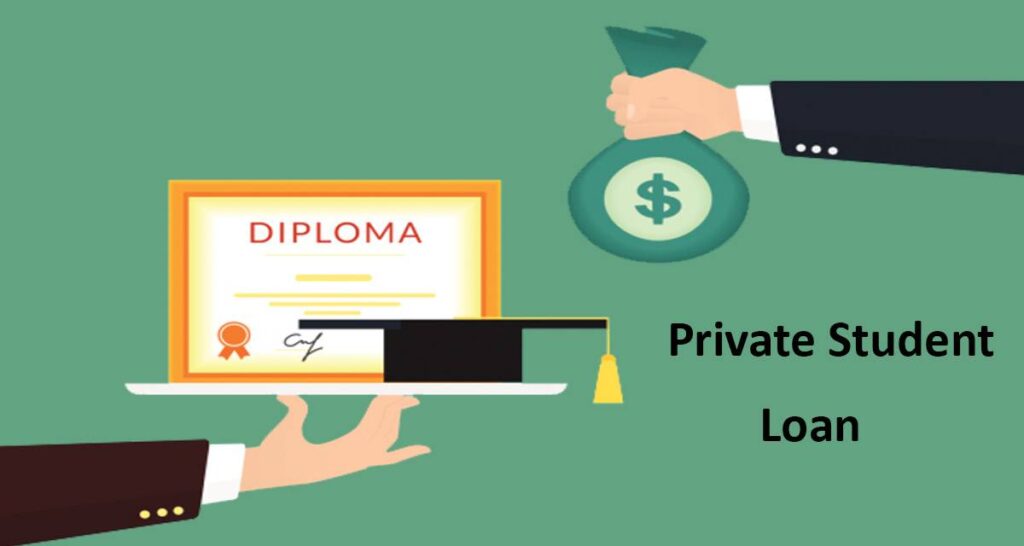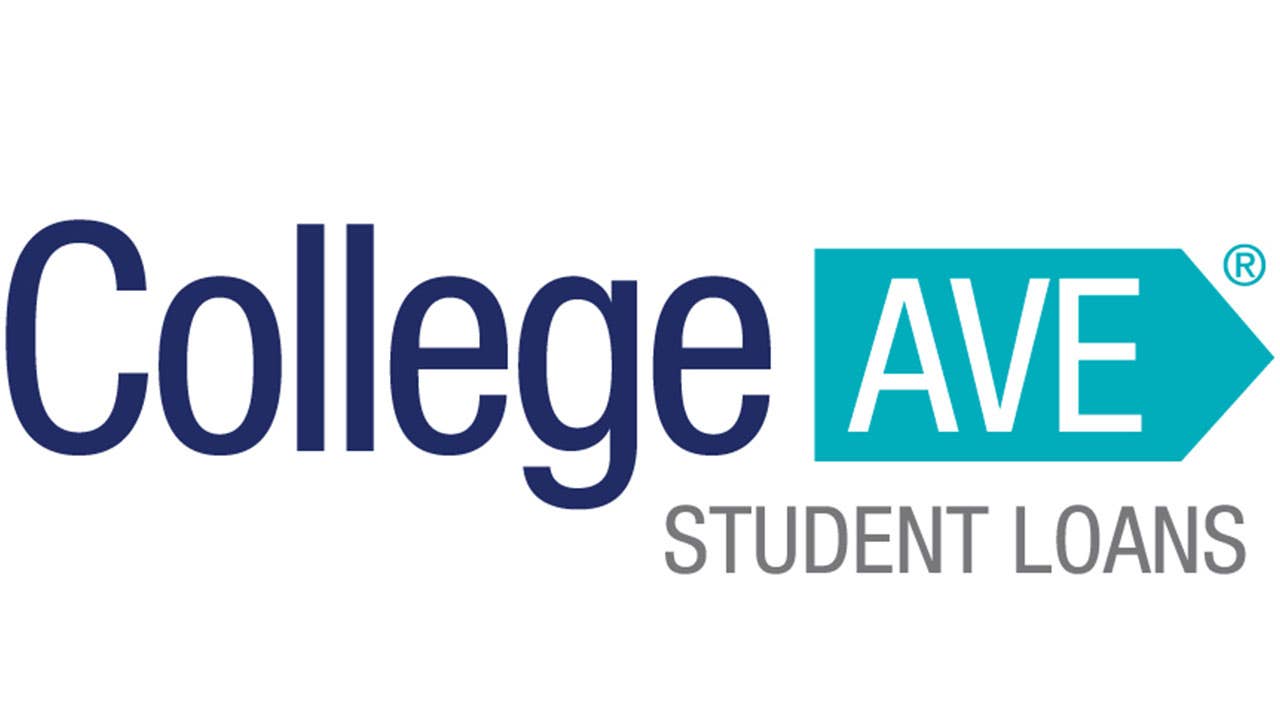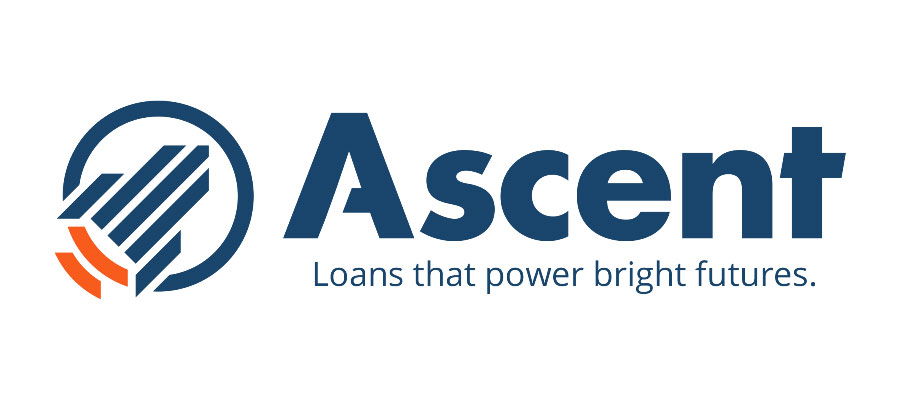5 Best Private Student Loans
You’ve come to the right site if you’re seeking straightforward information and assistance for private student loans. Let’s start with the fundamental explanation.
What is a private student loan?
A private student loan is a type of non-federal loan that is used to pay for college or graduate school. It is sometimes referred to as a private education loan or an alternative student loan. When all other free and federal financial aid options have been explored, private student loans might be a possibility. Strong credit history and reliable documentation of income or work are often requirements for these loans.

Who is Loan Lender?
An individual, group (public or private), or financial institution that provides money to a person or company with the expectation that the money will be paid back is known as a lender. Any fees or interest are included in the repayment.
Repayment can take the form of a lump sum or installments, like a monthly mortgage payment. A mortgage is one of the biggest loans that people obtain from lenders.
Purpose of Lenders:
For a number of purposes, including a home mortgage, a car loan, or a small company loan, lenders offer money. The loan’s terms outline how it must be repaid, including the time frame for repayment and the repercussions of late payments and default. To recover any unpaid money, a lender may turn to a collection agency.
Private student loans can be a smart choice if you still need money for education even after you’ve used up all of your scholarship, grant, work-study, and federal student loan choices.
We advise including a creditworthy cosigner in your application because the majority of private student loan lenders demand good credit in order to increase your chances of approval. You may be able to get a loan with a reduced interest rate if you have a cosigner, which will lower the total cost of the loan.
You may locate our partners’ top private student loans in the table and reviews below, which are the result of hours of study into interest rates, repayment schedules, special features, and other factors.
Best private student loan lenders:





1. College Ave
College Ave is a Wilmington, Delaware-based online student loan provider. The lender’s only goal is to help students and parents pay for the escalating expense of higher education in order to increase access to a college education.
You can benefit from College Ave’s Multi-Year Peace of MindTM when you borrow money from them. Because of this benefit, 90% of undergraduate borrowers who apply with a cosigner are accepted for further loans for subsequent years.
The advantages of College Ave. don’t end there. Additionally, it enables you to set your payback period and explains how your choice of term and plan affects the overall cost of your loan.
Are you considering submitting a loan application with College Ave? By clicking here, you can receive a quick credit decision in only three minutes.

Eligibility requirements:
Undergraduates, graduates, parents, and people pursuing a profession can all apply for student loans from College Ave. 98% of all undergraduate loans, according to the lender, have cosigners. You can increase your chances of fulfilling the following eligibility requirements by adding a cosigner:
Financial requirements:
Minimum credit score: Not disclosed
Minimum income: $35,000 per year
Approval after prior bankruptcy: No
Educational requirements:
School eligibility: Must be enrolled in a program that leads to a degree at a recognized school.
Enrolled half-time or more: Yes
Other requirements:
Citizenship: U.S. citizen or permanent resident or international students with a cosigner who is a U.S. citizen or permanent resident
State: Available in all 50 states
2. Sallie Mae:
The most well-known consumer bank and provider of student loans, Sallie Mae, has its headquarters in Newark, Delaware. It was established as a government organization in charge of servicing federal student loans. Sallie Mae then changed into a completely privatized bank between 1997 and 2004 and started providing private student loans.
Sallie Mae currently holds the greatest market share for private student loans. Additionally, it has increased the range of products it offers by adding savings accounts, credit cards, and more.
Benefits available to Sallie Mae borrowers include no origination or application costs, a Multi-Year Advantage, and four months of free Chegg® study assistance. Returning undergraduate students using Multi-Year Advantage who have a cosigner have a 95% approval rate for a subsequent loan.
Are you considering submitting a loan application to Sallie Mae? By clicking here, you can apply and receive a credit decision in about 15 minutes.
Eligibility requirements:
Graduates, parents, undergraduate students, and those pursuing a career can all apply for Sallie Mae student loans. The lender claims that adding a cosigner to the application increases the likelihood of approval for students by almost four times. An idea of a Sallie Mae student loan eligibility criterion is as follows:
Financial requirements:
Minimum credit score: Not disclosed
Minimum income: Not disclosed
Approval after prior bankruptcy: Yes, with no open bankruptcy
Educational requirements:
School eligibility: Must be enrolled in a program that leads to a degree at a recognized school.
Enrolled half-time or more: Yes
Other requirements:
Citizenship: U.S. citizen or permanent resident or non-U.S. citizen with a cosigner who is a U.S. citizen or permanent resident
State: Available in all 50 states, plus Washington D.C. and Puerto Rico
3. Earnest:
Earnest is a San Francisco, California-based internet lender. The lender was established with the intention of making higher education available to everyone and inexpensive.
The absence of costs is one of the key advantages of getting a loan from Earnest. Many lenders advertise their student loans as having no application or origination fees, however, this only applies to those origination and registration fees. With Earnest, there are no application fees and no penalties for paying off your loan early or making late payments.
Earnest doesn’t charge any fees and also provides a longer grace period than the industry standard as well as the option to miss a payment once a year.
Do you want to submit an application with Earnest? By clicking here, you may quickly and easily determine if you qualify.

Eligibility requirements:
Earnest student loans are available to undergraduates, graduates, and parents. The lender claims that four times as many students have their applications approved when they have a cosigner, and that two-thirds of its borrowers have a cosigner. The following criteria must be met in order to qualify for an Earnest student loan:
Financial requirements:
Minimum credit score: 650
Minimum income: $35,000 per year
Approval after prior bankruptcy: No
Educational requirements:
School eligibility: Must be enrolled in a program that leads to a degree at a recognized school.
Enrolled half-time or more: Yes
Other requirements:
Citizenship: U.S. citizen or permanent resident or non-U.S. citizen with a cosigner who is a U.S. citizen or permanent resident
State: All states other than Nevada, plus Washington D.C.
4. Ascent:
Ascent is a San Diego, California-based online student loan provider. In contrast to other lenders, it offers three distinct options for its student loan programs. Traditional cosigned loans, non-cosigned credit-based loans, and non-cosigned future income-based loans are among the possibilities available.
Ascent has various choices for deferment and forbearance, which will please borrowers seeking repayment protection. In addition to in-school deferral, residency, or internship deferment, Ascent’s student loans also allow for an active-duty military deferment.
Loans offer temporary hardship forbearance, administrative forbearance, and forbearance in the event of a proclaimed emergency or a natural disaster. All three of these choices will increase the loan’s repayment period.
Do you want to apply to work for Ascent? By clicking here, you can prequalify and check your rate without affecting your credit.

Eligibility requirements:
For undergraduates and graduates, Ascent offers cosigned and non-cosigned student loans. If you are unable to satisfy the cosigned loans eligibility standards, which are given below, you may qualify for Ascent’s non-cosigned loan.
Financial requirements:
Minimum credit score: 540
Minimum income: $24,000 per year
Approval after prior bankruptcy: Yes, but not in the last 5 years
Educational requirements:
School eligibility: Must be enrolled in a program that leads to a degree at a recognized school.
Enrolled half-time or more: Yes
Other requirements:
Citizenship: U.S. citizen or permanent resident, and international or DACA students with a U.S. citizen or permanent resident as a cosigner
State: Available in all 50 states
5. SoFi:
SoFi is an online personal finance company based in San Francisco, California. As the first company to refinance both federal and private student loans, it gained popularity in 2012. Since then, it has grown across almost all consumer lending markets and funded loans totaling more than $50 billion.
The wide variety of benefits offered to SoFi members is without a doubt one of the biggest attractions for borrowers. These advantages can be divided into three groups: financial, social, and professional.
Advice on financial planning from qualified advisors, referral bonuses, and member rate discounts are all financial advantages that you might gain. Participating in meals, happy hours, and networking gatherings all provide community benefits. Career perks include programs to safeguard you from unemployment as well as tools to assist you to get a raise.
Are you considering submitting a loan application to SoFi? By clicking here, you may quickly prequalify without having your credit affected.

Eligibility requirements:
Parents, graduates, and undergraduates can all apply for student loans through SoFi. The company claims that applicants who have a cosigner with good credit are seven times more likely to be approved. The following criteria must be met to qualify for a SoFi student loan:
Financial requirements:
Minimum credit score: Not disclosed
Minimum income: None
Approval after prior bankruptcy: Yes
Educational requirements:
School eligibility: Must be enrolled in a program that leads to a degree at a recognized school.
Enrolled half-time or more: Yes
Other requirements:
Citizenship: U.S. citizen, permanent resident, or visa holder (E-2, E-3, H-1B, J-1, L-1, or O-1), and international or DACA students with a U.S. citizen or permanent resident as a cosigner
State: Available in all 50 states
How do I make the selection of the top private student loans?
LendEDU has been evaluating private student loan lenders since 2014 to identify the top providers in the market. Twelve of our partners including a number of the biggest in terms of market share were included in our most recent study.
The six criteria we look at to grade each lender are listed below:
Interest rates:
The most important determinant of how much your loan will cost over time is the rate. We respected lenders that provided discounts and cheap rates.
Fees:
A private lender cannot be mentioned on this page if it charges origination, application, or prepayment fees. Lenders may also impose additional fees, such as late payment penalties. A lender’s rating improved if they levied fewer fees.
Repayment:
The majority of borrowers would take years to pay back their student loans, thus having flexible repayment choices were crucial in our study. The best ratings were given to lenders with borrower-friendly terms.
Cosigner benefits:
According to most estimates, cosigners are required for approximately 90% of new private student loans. Lenders were given a higher rating than those who didn’t permit cosigners to be freed from the loan.
Loan amount:
Make sure your student loan can pay for all of your costs before you take one out. The lenders who offer loans up to the full cost of a degree received the highest ratings.
(Important information: Only remove what you absolutely need. There are few student loans accessible if you don’t want to borrow more than you need)
Benefits:
Most student loan lenders provide distinctive advantages and incentives to set themselves apart from their rivals. These advantages could consist of a cost-free membership, a graduation gift, job help, and more. The greatest ratings went to lenders who offered services that let consumers better manage the cost of their loans.
What conditions must be met before receiving a private student loan?
Each lender has different criteria for eligibility. In general, you must be a citizen or lawful permanent resident of the United States, have good credit, attend a Title IV school at least half-time, and have a minimum annual income.
If you can’t satisfy those conditions on your own, you’ll probably need to include a cosigner on your loan application. Make sure the person who will be your cosigner is aware of the dangers involved. Your cosigner will be obligated to make additional loan payments if you are unable to make your scheduled monthly payments.
There are student loan lenders who offer student loans without a cosigner and student loans for overseas students if you are unable to fulfill the eligibility standards and do not have a cosigner to add to your loan.
Is taking out a private student loan a wise move for you?
For each year of undergraduate study, the amount of federal student loans is limited. Federal Parent PLUS loans, private student loans, and some states offering loan programs for residents or students in the state are also alternatives if you need to borrow more.
Once you graduate, you should be familiar with your budget for all loans. Your anticipated beginning salary should be sufficient to cover your monthly student loan payments after covering your basic expenses like accommodation, food, and transportation. Increased student debt may not be the best way to pay for your college fees if it appears that this may be a problem.
Author


